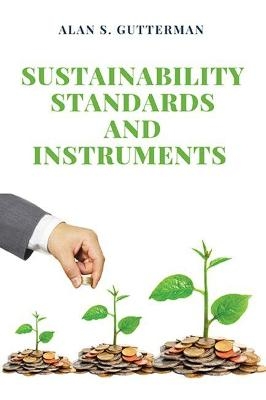
Sustainability Standards and Instruments
Seiten
2021
Business Expert Press (Verlag)
978-1-953349-88-0 (ISBN)
Business Expert Press (Verlag)
978-1-953349-88-0 (ISBN)
Serves as an introduction to sustainability standards and instruments and includes chapters on initiatives of governmental and intergovernmental bodies, sectoral CSR commitments, CSR-related reporting and management standards and securities exchanges and regulators.
Academics, policymakers, business people, members of civil society and individuals have all recognized the significant effect the activities of the private sector have on employees, customers, communities, the environment, competitors, business partners, investors, shareholders, governments and others. It is also becoming increasingly clear that firms can contribute to their own wealth and to overall societal wealth by considering the effect they have on the world at large when making decisions and take operational actions to execute their strategies.
All of this has led to growing interest in ""corporate social responsibility"", or ""CSR"", which has been described as the way that firms integrate social, environmental and economic concerns into their values, culture, decision making, strategy and operations in a transparent and accountable manner and thereby establish better practices within the firm, create wealth and improve society.
The commitments and activities associated with any CSR initiative should begin with compliance with laws and regulations promulgated by the governmental entities have jurisdiction over the firm's activities; however, CSR extends well ""beyond the law"" to include important subjects as to which the law has not been able to keep.
As a result, voluntary corporate responsibility standards developed from a variety of sources have emerged to fill the gap in areas such as corporate governance and ethics; health and safety; environmental stewardship; human rights (including core labor rights); working conditions and industrial relations; community involvement, development and investment; consumer issues; fair competition; anti-bribery and anti-corruption measures; accountability, transparency and performance reporting; and supplier relations.
This book is intended to serve as an introduction to sustainability standards and instruments and includes chapters on initiatives of governmental and intergovernmental bodies, sectoral CSR commitments, CSR-related reporting and management standards and securities exchanges and regulators.
The book also provides information on CSR-related nonprofits and NGOs that readers can use as resources for broadening their understanding of private sector activities relating to CSR and sustainability.
Academics, policymakers, business people, members of civil society and individuals have all recognized the significant effect the activities of the private sector have on employees, customers, communities, the environment, competitors, business partners, investors, shareholders, governments and others. It is also becoming increasingly clear that firms can contribute to their own wealth and to overall societal wealth by considering the effect they have on the world at large when making decisions and take operational actions to execute their strategies.
All of this has led to growing interest in ""corporate social responsibility"", or ""CSR"", which has been described as the way that firms integrate social, environmental and economic concerns into their values, culture, decision making, strategy and operations in a transparent and accountable manner and thereby establish better practices within the firm, create wealth and improve society.
The commitments and activities associated with any CSR initiative should begin with compliance with laws and regulations promulgated by the governmental entities have jurisdiction over the firm's activities; however, CSR extends well ""beyond the law"" to include important subjects as to which the law has not been able to keep.
As a result, voluntary corporate responsibility standards developed from a variety of sources have emerged to fill the gap in areas such as corporate governance and ethics; health and safety; environmental stewardship; human rights (including core labor rights); working conditions and industrial relations; community involvement, development and investment; consumer issues; fair competition; anti-bribery and anti-corruption measures; accountability, transparency and performance reporting; and supplier relations.
This book is intended to serve as an introduction to sustainability standards and instruments and includes chapters on initiatives of governmental and intergovernmental bodies, sectoral CSR commitments, CSR-related reporting and management standards and securities exchanges and regulators.
The book also provides information on CSR-related nonprofits and NGOs that readers can use as resources for broadening their understanding of private sector activities relating to CSR and sustainability.
| Erscheinungsdatum | 26.01.2021 |
|---|---|
| Verlagsort | Sterling Forest |
| Sprache | englisch |
| Gewicht | 333 g |
| Themenwelt | Naturwissenschaften ► Biologie ► Ökologie / Naturschutz |
| Wirtschaft ► Betriebswirtschaft / Management ► Unternehmensführung / Management | |
| Wirtschaft ► Volkswirtschaftslehre | |
| ISBN-10 | 1-953349-88-9 / 1953349889 |
| ISBN-13 | 978-1-953349-88-0 / 9781953349880 |
| Zustand | Neuware |
| Informationen gemäß Produktsicherheitsverordnung (GPSR) | |
| Haben Sie eine Frage zum Produkt? |
Mehr entdecken
aus dem Bereich
aus dem Bereich
Lehrbuch zu Grundlagen, Technologie und Praxis
Buch | Hardcover (2022)
Hanser (Verlag)
CHF 48,95


